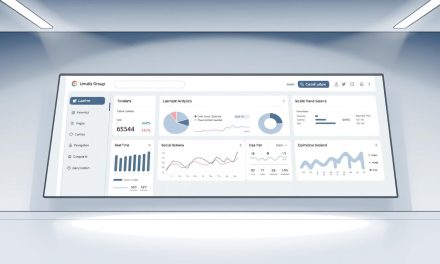
In today’s competitive market, independent professionals face unique challenges. Whether you’re a freelancer or a consultant, growth often requires more than just talent. That’s where specialized support comes in. Professional services are no longer just an option—they’re a necessity for success.
Studies show that 73% of French freelancers report higher project success rates when using tailored solutions. These services provide more than just compliance and technology integration. They offer operational efficiency, helping you focus on what you do best—your business.
Since 2018, the sector has seen a 10% annual revenue growth, proving their value. At the core, these services combine institutional expertise with personalized engagement. They’re not just tools; they’re strategic partners in your journey.
Table of Contents
Key Takeaways
- Specialized support drives success for independent professionals.
- 73% of freelancers report higher project success rates with tailored solutions.
- Professional services ensure compliance, technology integration, and efficiency.
- The sector has grown by 10% annually since 2018.
- These services combine expertise with personalized engagement.
Professional Services Defined: Scope and Significance
Specialized knowledge drives modern solutions across various industries. These solutions are designed to empower people and businesses alike, ensuring operational efficiency and compliance. With the growing complexity of business environments, tailored expertise has become indispensable.
What Are Professional Services?
Professional services encompass expert-led solutions requiring specialized knowledge. Fields like legal, IT, and marketing rely on these services to address unique challenges. For instance, Bechtle’s ISO 27001-certified teams implement secure Modern Workplace solutions, ensuring data protection and operational continuity.
Key Sectors: Legal, IT, Marketing, and Beyond
The scope of professional services extends across multiple sectors. In the legal industry, compliance frameworks ensure businesses adhere to regulations. IT services focus on infrastructure design and automation, while marketing operations leverage specialized knowledge to enhance client engagement.
| Sector | Key Focus | Example |
|---|---|---|
| Legal | Compliance Frameworks | Contract Drafting |
| IT | Infrastructure Design | Cloud Transition Support |
| Marketing | Client Engagement | Automated Campaigns |
Emerging fields like DevOps integration and cloud transition support highlight the evolving nature of these solutions. For more insights on complementary solutions, explore additional services for independent professionals.
The Evolving Landscape of Professional Services

The professional landscape is rapidly transforming, driven by advancements in technology. Since 2018, the sector has seen a 10% year-over-year revenue growth, reflecting its increasing importance. Businesses are adapting to stay competitive in this tech-driven world.
One significant shift is the move toward cloud-based delivery models. This change, accelerated by the pandemic, has improved operational efficiency and client engagement. For example, 68% of French consultants now use ERP/CRM systems, up from 42% in 2020.
Emerging trends like AI-driven risk assessment tools and automated compliance monitoring are reshaping the industry. These technologies enhance decision-making and ensure adherence to regulations. Bechtle’s IT Map methodology is a prime example, analyzing enterprise tech dependencies to optimize performance.
The EU Digital Services Act has also increased demand for compliance solutions. This regulation impacts how businesses operate, ensuring they meet higher standards. Such changes highlight the need for adaptable clients and innovative approaches.
| Trend | Impact | Example |
|---|---|---|
| Cloud-Based Models | Improved Efficiency | ERP/CRM Adoption |
| AI-Driven Tools | Enhanced Decision-Making | Risk Assessment |
| Compliance Monitoring | Regulatory Adherence | EU Digital Services Act |
A case in point is the migration of 500+ user environments to D365 Finance & Operations. This project demonstrates how technology can scale business operations effectively. As the landscape evolves, staying ahead requires embracing these innovations.
Why Clients Rely on Professional Services
Clients today seek reliable solutions to navigate complex business challenges. From compliance to operational efficiency, these services provide the expertise needed to achieve success. Let’s explore the key reasons why businesses trust these solutions.
Compliance and Risk Mitigation
Compliance is a top priority for businesses, especially with evolving regulations. Managed solutions reduce risks significantly. For example, Bechtle’s PRINCE2/ITIL frameworks ensure a 98% project delivery success rate.
GDPR violations are a major concern. Managed compliance services have shown a 63% reduction in such risks. This not only protects businesses but also builds trust with clients.
Operational Efficiency and Expertise
Efficiency drives business growth. Expert-led solutions streamline operations, from IT infrastructure assessment to phased implementation. This ensures smooth project execution and resource allocation.
Real-world examples highlight the impact. Achieving ISO 27001 certification in just 12 weeks through managed services is a testament to their effectiveness. Automated workflows, like those using D365 Field Services modules, further enhance productivity.
- ROI analysis: Compare the cost of non-compliance with investments in expert solutions.
- Operational blueprint: From initial assessment to implementation, every step is optimized.
- Decision-making frameworks: Allocate resources effectively in multi-phase projects.
Leveraging Technology in Professional Services

Technology is reshaping how businesses operate, offering new ways to streamline processes. From financial reporting to client engagement, advanced tools are transforming the industry. These technologies not only enhance efficiency but also provide scalable solutions for complex challenges.
ERP Solutions: D365 Finance & Operations
Enterprise Resource Planning (ERP) systems like D365 Finance & Operations are revolutionizing financial management. Bechtle’s standardized deployment chains reduce setup time by 40%, ensuring faster implementation. With 31% quicker financial reporting cycles, businesses can make informed decisions in real-time.
Configuring D365 for multi-currency operations in EU markets is a game-changer. It simplifies cross-border transactions and ensures compliance with regional regulations. Continuous performance monitoring through ERP dashboards further enhances operational efficiency.
CRM Tools: D365 Field Services
Customer Relationship Management (CRM) tools like D365 Field Services optimize client interactions. A case study involving 200+ mobile technicians demonstrated significant improvements in field service efficiency. Automated workflows and real-time updates ensure seamless operations.
Hybrid cloud environments require robust security protocols. Protecting client data is a top priority, and D365’s encryption measures provide peace of mind. Maintenance strategies, including regular audits, ensure long-term reliability.
| Solution | Key Benefit | Example |
|---|---|---|
| ERP Systems | Faster Financial Reporting | 31% improvement in reporting cycles |
| CRM Tools | Field Service Optimization | 200+ mobile technicians |
| Security Protocols | Data Protection | Hybrid cloud encryption |
Whether it’s ERP or CRM, these technologies are essential for modern management. They not only streamline operations but also provide the scalability needed for growth. By leveraging these tools, businesses can stay ahead in a competitive landscape.
Choosing the Right Model: Independent vs. Embedded Services
Selecting the right service model can make or break your project’s success. Whether you opt for independent or embedded services, understanding the differences is crucial. TSIA research reveals that 57% of tech companies maintain embedded teams, while Bechtle’s decentralized experts achieve 89% local compliance accuracy.
When deciding between models, consider the duration of your project and the depth of expertise required. Independent services offer flexibility, while embedded teams provide seamless integration. A hybrid approach, combining embedded IT architects with independent compliance specialists, can deliver the best of both worlds.
Contract models also play a key role. Retainer-based structures ensure ongoing support, while milestone billing aligns payments with deliverables. Each option has its merits, depending on your business needs.
- Risk assessment: Data sovereignty is critical in cross-border agreements. Ensure compliance with local regulations.
- Transition planning: Migrate from embedded to independent models without downtime by leveraging phased implementation strategies.
Ultimately, the right model depends on your client’s goals and operational requirements. By carefully evaluating these factors, you can choose a solution that drives success and ensures long-term efficiency.
Conclusion
Expert-led solutions are shaping the future of business resilience. By leveraging specialized expertise, firms can navigate compliance and operational challenges with confidence.
AI-driven tools enhance risk assessment and automate reporting, ensuring efficiency. Adopting these technology solutions in phases, with certified partners, minimizes disruptions.
For actionable insights, access Bechtle’s free IT infrastructure assessment toolkit. It’s designed to help clients transform knowledge into sustainable growth.
Ready to optimize your strategy? Start with trusted guidance today.
FAQ
What are professional services?
Professional services refer to specialized expertise provided to clients across industries like legal, IT, and marketing. These services help businesses achieve specific goals with precision and efficiency.
Why do clients rely on professional services?
Clients depend on these services for compliance, risk mitigation, and operational efficiency. They provide the expertise needed to navigate complex challenges and streamline processes.
How does technology enhance professional services?
Tools like ERP solutions, such as D365 Finance & Operations, and CRM platforms, like D365 Field Services, improve workflow automation, data management, and client interactions.
What is the difference between independent and embedded services?
Independent services are outsourced to external experts, while embedded services integrate specialists directly into a client’s team. The choice depends on project needs and resource availability.
What sectors benefit most from professional services?
Key sectors include legal, IT, marketing, finance, and healthcare. These industries often require specialized knowledge to meet regulatory and operational demands.




